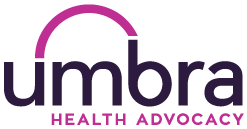Black Box Warnings May Save Your Life

This often comes as a major surprise for patients: that when a prescription drug is known to be effective, and is approved by the FDA for some patients, that doesn't mean it's effective and safe for all patients.
It's true that some people may be allergic, or the drug might have been prescribed to treat the wrong diagnosis, or the patient may not take the drug properly and over (or under) dose....
...But those situations are not what I'm addressing in this post.
Instead what I'm describing is the fact that patients die or are harmed every day from FDA-APPROVED pharmaceutical drugs, drugs their doctors prescribed for them to take to improve their health and medical problems. (I'll mention here that no doctor prescribes a drug with an intent to kill his or her patient. But that does not mean a drug is safe for everyone, including you.)
Sometimes the FDA approves a drug that may help some patients, but can be truly dangerous for many others. Here are two examples:
- Flouroquinolones are strong antibiotics with brand names like Cipro and Levaquin, and are often used to clear up problems like urinary tract infections or pneumonia. However, some patients found themselves with tendon ruptures from the drugs.
- Avandia is a drug developed for patients with diabetes. Many diabetes patients also suffer from heart disease, and Avandia was found to increase their chances of suffering heart attacks.
- Xarelto is a drug that prevents blood from clotting. Patients who experience severe side effects often bleed to death as there is no antidote.
For both these drugs (classes) the FDA ultimately issued what is called a Black Box Warning. Because these drugs were found to be harmful for many of the people they were originally intended to help, a Black Box Warning is the strongest effort the FDA can make to warn doctors and patients about the potential for harm if given to the wrong patient.
The name "Black Box" comes from the fact that warning itself, as printed in the materials that accompany the drug,is surrounded by a black box.
When the FDA issues a Black Box warning, it is telling the drug manufacturer that it is one step short of removing the drug from the market. It's a recognition of how harmful the drug can be if given to patients who are at risk of developing the possible adverse side effects.
What Should You Do to Protect Yourself?
- Check the drugs you take against the FDA's drug database to see if that drug is black-boxed, or to learn about any other precautions and side effects it has recorded. You should do this for the drugs you currently take, and for each new drug you may be prescribed over time.
- Talk with one of the best resources a patient has - your pharmacist! Pharmacists can help you understand about all the safety issues you need to be aware of for all the drugs you take. Further, they will often spend much more time with you than your doctor can.
- Consult with an independent patient advocate who can navigate the resources needed to keep you safe.
Questions to Ask
When your doctor prescribes a drug, you'll want to know as much as you can about the drug itself, and the drug in relation to other substances you ingest. Drug interactions take place with other drugs you take, foods you eat, beverages you drink, and anything you smoke. Ask:
- What are the benefits to me if I take this drug?
- What side effects might I experience? (And are the side effects worse than my current status?)
- What alternatives to this drug might there be? (This question can address other health and money options.)
- What happens if I drink alcohol, or eat sugary or fatty foods or... (lifestyle questions - how will this drug be affected by, or affect your habits?)
- Doctor, if your mother was in my position, would you prescribe this drug for her?
If You Encounter Problems with a Prescribed Drug
You can report adverse effects to the FDA. After many people report problems, they will look at the safety of the drug. You'll be helping others stay safe while you feel good about making that positive contribution.
- Go online to FDA Medwatch to report the problems you have had.
- Or call the FDA directly to report the incident: 1-800-FDA-1088 Download their report form to see what questions you'll be asked.
Additional Resources:
With thanks to Consumer Safety for providing us with this list of common Black Boxed drugs. You can find their most current alerts here.

Bottom line: The healthcare system is not set up to effectively keep patients safe. We must be sure we cover our own backsides with each test, procedure, or treatment step we take. Double checking the safety of prescribed drugs is a key step in helping yourself improve your own health.
Find a Health / Patient Advocate or Navigator
Learn more about The Alliance of Professional Health Advocates
